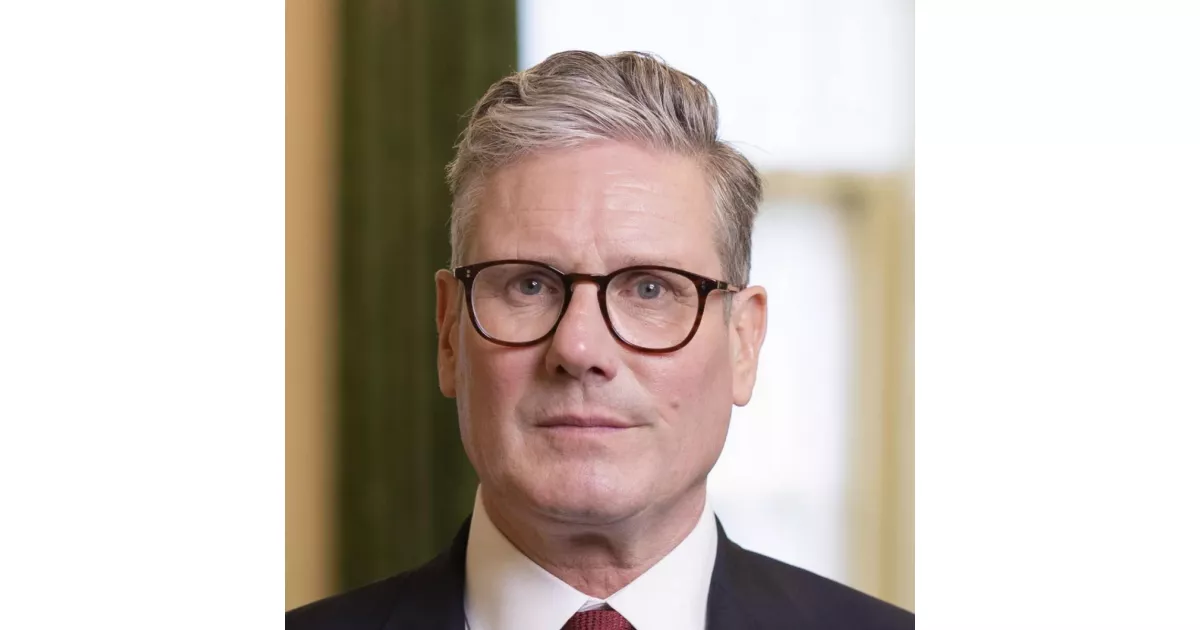Keir Starmer is a British politician and lawyer, currently serving as Prime Minister of the United Kingdom since 2024. He has led the Labour Party since 2020 and was previously the Leader of the Opposition. Starmer has been the Member of Parliament for Holborn and St Pancras since 2015. Before entering politics, he was the Director of Public Prosecutions from 2008 to 2013, giving him a strong legal background prior to his political career.
September 1962: Keir Starmer's Birth
In September 1962, Keir Rodney Starmer was born. He is now a British politician and lawyer.
1976: School converted into an independent fee-paying school
In 1976, Reigate Grammar School, which Keir Starmer attended, converted into an independent fee-paying school while he was a student there.
1984: Emergency Powers used to tackle striking miners
In 1984 and 1985, special emergency powers were first used 40 years ago under the Ridley Plan, to tackle striking miners.
1985: Emergency Powers used to tackle striking miners
In 1984 and 1985, special emergency powers were first used 40 years ago under the Ridley Plan, to tackle striking miners.
1985: Graduated with a Bachelor of Laws degree
In 1985, Starmer graduated with a Bachelor of Laws degree from the University of Leeds.
1985: Graduated from the University of Leeds
In 1985, Starmer graduated with a first class LLB from the University of Leeds.
1986: Received postgraduate Bachelor of Civil Law degree
In 1986, Starmer received a postgraduate Bachelor of Civil Law degree from the University of Oxford where he was a student at St Edmund Hall.
1986: Took BCL degree from the University of Oxford
In 1986, Starmer took a Bachelor of Civil Law (BCL) degree from the University of Oxford.
1987: Became a barrister
In 1987, Starmer became a barrister at the Middle Temple.
1990: Served as a legal officer for Liberty
From 1987 until 1990, Starmer served as a legal officer for the campaign group Liberty.
1997: Reference to 1997 General Election
Keir Starmer led Labour to a landslide victory at the general election, achieving the party's third-best result in terms of seat-share following the 1997 general election.
1999: Junior Barrister on Lee Clegg's appeal
In 1999, Starmer was a junior barrister on Lee Clegg's appeal.
2001: Reference to 2001 General Election
Keir Starmer led Labour to a landslide victory at the general election, achieving the party's third-best result in terms of seat-share following the 2001 general election.
April 2002: Appointed Queen's Counsel
On April 9, 2002, Starmer was appointed Queen's Counsel at the age of 39.
2002: Member of Death Penalty Advisory Panel
From 2002, Starmer served as a human rights advisor to the Northern Ireland Policing Board and also as a member of the Foreign, Commonwealth and Development Office's Death Penalty Advisory Panel.
2002: Largest Party in Local Government
In 2002, Labour became the largest party in local government.
2002: Took silk as a Queen's Counsel
In 2002, Starmer took silk as a Queen's Counsel.
2005: Largest Party in England
As a result of the 2024 election, the Labour party became the largest in England for the first time since 2005.
2005: Called Queen's Counsel appointment "odd"
In 2005, Starmer called his Queen's Counsel appointment "odd" as he had previously expressed support for the abolition of the monarchy.
2005: Last Labour Prime Minister to Win a General Election
On 5 July 2024, Keir Starmer was appointed Prime Minister, becoming the first Labour prime minister to win a general election since Tony Blair in 2005.
July 2008: Named Head of the Crown Prosecution Service
In July 2008, Patricia Scotland named Starmer as the new Head of the Crown Prosecution Service (CPS) and Director of Public Prosecutions (DPP).
November 2008: Succeeded Ken Macdonald
On 1 November 2008, Starmer succeeded Ken Macdonald as Head of the Crown Prosecution Service (CPS) and Director of Public Prosecutions (DPP).
2008: Became Director of Public Prosecutions
In 2008, Keir Starmer became the Director of Public Prosecutions.
2008: End of term in Death Penalty Advisory Panel
In 2008, Starmer's term ended in the Foreign, Commonwealth and Development Office's Death Penalty Advisory Panel.
2009: Became a bencher
In 2009, Starmer became a bencher at the Middle Temple.
February 2010: Prosecution of MPs for False Accounting
In February 2010, Keir Starmer, as the Director of Public Prosecutions, announced the decision to prosecute three Labour MPs and a Conservative peer for offences relating to false accounting following the parliamentary expenses scandal. All were later found guilty.
2010: Largest Party in Scotland
As a result of the 2024 election, the Labour party became the largest in Scotland for the first time since 2010.
2010: Last Labour Prime Minister
On 5 July 2024, Keir Starmer was appointed Prime Minister, becoming the first Labour prime minister since Gordon Brown in 2010.
2011: Awarded Honorary Degrees
Between 2011 and 2014, Keir Starmer was awarded several honorary degrees.
2011: Prioritization of Rapid Prosecutions during England Riots
In 2011, Keir Starmer prioritized rapid prosecutions of rioters over long sentences during the England riots, concluding that this approach helped restore control over the situation.
2011: Introduced reforms
In 2011, Starmer introduced reforms that included the "first test paperless hearing".
February 2012: Prosecution of Chris Huhne
In February 2012, Keir Starmer announced that Chris Huhne would be prosecuted for perverting the course of justice, reinforcing the principle that politicians would be prosecuted when sufficient evidence existed.
2012: "Twitter Joke Trial" and Jimmy Savile Scandal
In 2012, Keir Starmer faced allegations regarding his role in the prosecution of Paul Chambers in the "Twitter joke trial," which the CPS denied. Also in 2012, following the exposure of Jimmy Savile's sexual abuse crimes, Starmer acknowledged the public's demand for answers regarding how Savile evaded justice for so long.
November 2013: Stepping Down as Director of Public Prosecutions
In November 2013, Keir Starmer stepped down from his role as the Director of Public Prosecutions and was succeeded by Alison Saunders.
2013: Changes to Sexual Abuse Investigations
In 2013, Keir Starmer announced changes to how sexual abuse investigations were to be handled amid Operation Yewtree, including a panel to review complaints.
2013: End of term as Director of Public Prosecutions
In 2013, Keir Starmer ended his term as the Director of Public Prosecutions.
2013: Starmer declines to abolish the two-child benefit cap introduced in 2013
In 2013, Starmer declined to abolish the two-child benefit cap introduced by the Cameron–Clegg coalition government, citing financial reasons.
December 2014: Selected as Labour Candidate
In December 2014, Keir Starmer was selected as the Labour parliamentary candidate for Holborn and St Pancras.
2014: Represented Croatia at the genocide hearings
In 2014, Starmer represented Croatia at the genocide hearings before the International Court of Justice at The Hague.
2014: Appointed Knight Commander of the Order of the Bath
In the 2014 New Year Honours, Keir Starmer was appointed Knight Commander of the Order of the Bath (KCB) for his services to law and criminal justice.
September 2015: Appointment to Shadow Cabinet
In September 2015, Keir Starmer was appointed to Jeremy Corbyn's Shadow Cabinet as Shadow Home Office Minister.
2015: Became Member of Parliament
In 2015, Keir Starmer became the Member of Parliament (MP) for Holborn and St Pancras.
2015: Elected as MP for Holborn and St Pancras
In 2015, Keir Starmer was elected as the Member of Parliament for Holborn and St Pancras.
2015: Elected to the House of Commons
In 2015, Starmer was elected to the House of Commons at the general election.
2015: Declined Leadership Bid and Support for Andy Burnham
In 2015, after Ed Miliband's resignation, Keir Starmer was urged to stand in the Labour Party leadership election but declined, citing his inexperience. He supported Andy Burnham, who finished second to Jeremy Corbyn.
2015: Did not confirm his namesake
In 2015, when asked, Starmer did not confirm that he was named after Keir Hardie.
June 2016: Resignation from Shadow Cabinet
In June 2016, Keir Starmer resigned from his role as Shadow Home Office Minister as part of widespread Shadow Cabinet resignations in protest at Jeremy Corbyn's leadership after the 2016 EU Referendum result.
September 2016: Appointment as Shadow Brexit Secretary
In September 2016, following Jeremy Corbyn's re-election, Keir Starmer accepted the position of Shadow Secretary of State for Exiting the European Union.
2016: Supported the Remain campaign
In 2016, Starmer supported the Remain campaign in the European Union membership referendum.
2016: Support for Remaining in the EU
In 2016, during the European Union membership referendum, Keir Starmer supported the Britain Stronger in Europe campaign, advocating for the UK to remain in the EU.
2017: Re-elected as MP
In 2017, Keir Starmer was re-elected as the MP for Holborn and St Pancras, increasing his majority.
December 2019: Starmer received gifts
Since December 2019, Sky News reported that Starmer had received £107,145 in gifts, benefits, and hospitality since December 2019, which was two-and-a-half times more than any other MP.
2019: Corbyn's resignation
Following Corbyn's resignation after Labour's defeat at the 2019 general election, Starmer succeeded him by winning the 2020 leadership election.
2019: Peak in Party Membership
Following the 2019 general election, the Labour Party reached a peak in membership.
2019: Defeat at General Election
Following the Labour party's defeat at the 2019 general election, Corbyn announced he would not lead the party at the next election. Starmer began distancing himself from Corbyn's leadership.
2019: Re-election as MP
In 2019, Keir Starmer was re-elected as the MP for Holborn and St Pancras, with a reduced majority.
January 2020: Announcement of Labour Leadership Candidacy
On January 4, 2020, Keir Starmer announced his candidacy for the Labour leadership election, gaining support from figures like Gordon Brown and Sadiq Khan. He ran on a left-wing platform, opposing austerity and supporting common ownership of key utilities.
April 2020: Victory in Labour Leadership Contest
On April 4, 2020, Keir Starmer was declared the winner of the Labour leadership contest, defeating Rebecca Long-Bailey and Lisa Nandy with 56.2 per cent of the vote.
October 2020: Acceptance of EHRC Report and Apology for Antisemitism
In October 2020, following the release of the Equality and Human Rights Commission (EHRC)'s report into antisemitism in the Labour Party, Keir Starmer accepted its findings in full and apologised to Jews on the Party's behalf.
2020: Became Leader of the Labour Party
In 2020, Keir Starmer became the Leader of the Labour Party and Leader of the Opposition.
2020: Won leadership election
In 2020, Starmer won the leadership election and moved Labour towards the political centre.
May 2021: First Shadow Cabinet Reshuffle
In May 2021, Keir Starmer conducted the first of three reshuffles of his Shadow Cabinet.
November 2021: Second Shadow Cabinet Reshuffle
In November 2021, Keir Starmer conducted the second of three reshuffles of his Shadow Cabinet.
2021: Consideration of Resignation After Local Election Results
In 2021, Keir Starmer considered resigning after Labour's mixed results in the local elections, but ultimately decided to stay on and "double down" on his efforts to change the Labour Party.
2021: Hartlepool By-Election Loss
In 2021, Keir Starmer's party suffered the loss of a previously safe Labour seat at the Hartlepool by-election, followed by holds at the Batley and Spen by-election.
May 2022: Pledge to Resign Amid "Beergate" Controversy
In May 2022, Keir Starmer pledged to resign if he received a fixed penalty notice for breaching COVID-19 regulations during campaigning, in an event dubbed "beergate".
July 2022: Vote of No Confidence in the Government
Amidst the historic number of ministers resigning from Boris Johnson's government in July 2022, Keir Starmer proposed a vote of no confidence in the Government and criticized Johnson, Liz Truss, and Rishi Sunak on various issues including the Chris Pincher scandal, economic crises, cost of living crisis, and industrial disputes.
July 2022: Cleared in "Beergate" Investigation
In July 2022, Durham Police cleared Keir Starmer in the "beergate" investigation, stating that he had "no case to answer".
August 2022: Breach of MP's Code of Conduct
In August 2022, the Parliamentary Commissioner for Standards, Kathryn Stone, found that Keir Starmer had breached the MPs' code of conduct eight times by failing to register interests on eight occasions.
2022: By-Election Results
In 2022, Keir Starmer's party held the Birmingham Erdington and City of Chester by-elections, as well as gaining a seat from the Conservatives at the Wakefield by-election.
2022: Lead in Opinion Polls
Labour entered the general election with a large lead over the Conservatives in opinion polls, which had been the case since 2022.
February 2023: End of EHRC Monitoring
In February 2023, Keir Starmer's antisemitism reforms resulted in the Labour Party no longer being monitored by the EHRC.
September 2023: Third Shadow Cabinet Reshuffle
In September 2023, Keir Starmer conducted the third reshuffle of his Shadow Cabinet which reduced the representation of the left and soft left on the Opposition frontbench, while increasing the representation of the Party's right.
October 2023: Comments on the Hamas attack on Israel
In October 2023, Starmer said Israel had the "right to defend" itself and suggested Israel had the right to cut off power and water from the Gaza Strip, but added "everything should be done within international law". This sparked significant controversy within his party.
2023: Gains in Local Elections
During the 2023 local elections, Labour gained more than 500 councillors and 22 councils, becoming the largest party in local government for the first time since 2002.
2023: Labour party made significant gains
In 2023, Labour party made significant gains in the local elections.
2023: 2023 King's Speech features Tobacco and Vapes Bill
In 2023, the Tobacco and Vapes Bill, featured in the King's Speech, but had been abandoned when the election was called.
May 2024: Announcement of General Election
On 22 May 2024, Prime Minister Rishi Sunak announced that a general election would be held on 4 July 2024.
June 2024: Release of Labour Party's 2024 Manifesto
In June 2024, Keir Starmer released the Labour Party's 2024 manifesto, titled "Change", which focused on economic growth, healthcare, education, and workers' rights. It pledged a new publicly owned energy company (Great British Energy), a "Green Prosperity Plan", reducing patient waiting times in the NHS, and renationalisation of the railway network (Great British Railways).
July 2024: Response to attempted assassination of Donald Trump
Following the attempted assassination of Donald Trump in July 2024, Starmer posted on X (formerly Twitter) saying "Political violence in any form has no place in our societies".
July 2024: First Prime Minister's Questions
In July 2024, Keir Starmer's first acts as prime minister included declaring the Rwanda asylum plan "dead," tasking Yvette Cooper with establishing a Border Security Command, touring the UK, meeting various leaders and regional mayors, establishing the Council of the Nations and Regions, and attending his first Prime Minister's Questions in parliament on July 24th, 2024.
July 2024: Biden congratulates Starmer
In July 2024, following the 2024 general election, US President Joe Biden congratulated Starmer on "a hell of a victory".
July 2024: Appointed Prime Minister
On 5 July 2024, Keir Starmer was appointed Prime Minister, First Lord of the Treasury and Minister for the Civil Service by King Charles III. He is the first Labour prime minister since Gordon Brown in 2010 and the first one to win a general election since Tony Blair in 2005.
July 2024: Labour MPs suspended for voting to scrap two-child benefit cap
On July 23rd, 2024, Labour withdrew the whip from seven of its MPs who had supported an amendment to scrap the two-child benefit cap. Starmer also launched a Child Poverty Taskforce.
July 2024: General Election
Prime Minister Rishi Sunak announced that a general election would be held on 4 July 2024.
July 2024: Attended NATO summit
The first overseas meeting Starmer attended as prime minister was the 2024 NATO summit held in Washington from 9 to 11 July 2024. On the flight to the summit, Starmer laid out a "cast iron" commitment to increase defence spending to the NATO target of 2.5 per cent of GDP.
August 2024: Public-sector worker pay increase
In August 2024, Starmer's government agreed to increase public-sector worker pay by 5 to 7 per cent.
August 2024: Talks towards revising a Germany-UK co-operation agreement announced
On 27 August 2024, Starmer and German Chancellor Olaf Scholz announced talks towards revising a Germany-UK co-operation agreement covering areas including defence, energy security, science and technology.
September 2024: Criticism for accepting gifts from Labour donors
In September 2024, Starmer and fellow senior government ministers faced criticism for accepting gifts from Labour donors. Starmer also faced accusations of breaking parliamentary rules by not declaring £5,000 worth of clothes bought for his wife by Labour donor Lord Alli.
September 2024: Meeting with Donald Trump at Trump Tower
In September 2024, during a visit to New York City to address the UN General Assembly, Starmer met Republican Party presidential candidate Donald Trump at Trump Tower. Following the meeting, Starmer said it was "good" to have met with Trump and that the meeting was an opportunity for both Trump and Starmer to establish a working relationship.
September 2024: Pledge that there would be no more money for the NHS without reform
On September 11th, 2024, Starmer pledged that there would be no more money for the NHS without reform, stating that the solution was reform, not money.
October 2024: Enhancement of employment regulations
On October 10th, 2024, the Government implemented an increase in minimum wages and a wide array of rights. On October 14th, billions worth of investments in emerging growth sectors including AI and life sciences, and infrastructure were unveiled at the government's inaugural International Investment Summit.
October 2024: October 2024 budget
On October 30th, 2024, Chancellor of the Exchequer Rachel Reeves presented the October 2024 budget to the House of Commons, covering Labour's fiscal plans. The National Minimum Wage is set to increase by 6.7 per cent and a £22.6 billion increase in the day-to-day health budget was announced, with a £3.1 billion increase in the capital budget. Education will receive £6.7 billion of capital investment.
November 2024: Meeting with Xi Jinping at the G20 summit
In November 2024, Starmer met Chinese leader Xi Jinping at the G20 summit in Rio de Janeiro and told him he wanted to build a 'consistent, durable, respectful' relationship with China.
November 2024: Netanyahu to be arrested if he travels to the UK
In November 2024, Starmer's government stated that Netanyahu would be arrested if he travels to the UK, after the International Criminal Court issued an international arrest warrant for him for alleged war crimes.
2024: NATO summit
At the 2024 NATO summit, Starmer signalled that Ukraine could use British Storm Shadow missiles to strike military targets inside Russia, during the Russian invasion of Ukraine. Starmer called for an "irreversible" membership strategy for Ukraine to join NATO.
2024: Drop in Party Membership and Reasons Attributed
During Keir Starmer's tenure as leader, Labour saw a drop in party membership from a peak of 532,000 after the 2019 election to 370,450 in the runup to the 2024 election. More than 20,000 members left the party within two months in 2024, with blame placed on the party's stance on the Gazan genocide and green investment.
2024: Became Prime Minister
In 2024, Keir Starmer became the Prime Minister of the United Kingdom.
2024: Revealing Thoughts on the 2019 Election
In 2024, Keir Starmer revealed that he was "certain that we would lose the 2019 election".
2024: Labour's 2024 election manifesto focuses on domestic issues
In 2024, Keir Starmer stated his primary concerns would be economic growth, reforming the planning system, infrastructure, energy, healthcare, education, childcare, and strengthening workers' rights, as set out in Labour's 2024 election manifesto.
2024: Re-election as MP and Becoming Prime Minister
In 2024, Keir Starmer was re-elected as the MP for Holborn and St Pancras with a further reduced majority, despite a Labour landslide nationally, and him becoming Prime Minister.
2024: Further Gains at Local Elections
In 2024, Labour made further gains at the local elections, gaining from the Conservatives at the Blackpool South by-election and narrowly winning the West Midlands mayoral election.
2024: Labour party made significant gains
In 2024, Labour party made significant gains in the local elections.
2024: Led Labour to victory at the general election
In 2024, Starmer led Labour to a landslide victory at the general election, ending fourteen years of Conservative government. Under his premiership, various policies were implemented, and he addressed foreign policy issues.
2024: Response to Southport stabbing and subsequent riots
In 2024, following the Southport stabbing, Keir Starmer described the incident as horrendous and shocking. He visited Southport and laid flowers at the scene. Amidst the riots across England and Northern Ireland following the stabbing, Starmer stated that rioters would feel the full force of the law.
February 2025: Starmer meets with President Trump at the White House
In February 2025 Starmer met with President Trump at the White House to discuss continued support to Ukraine and a potential peace deal. They additionally discussed a potential trade deal. He also presented a hand written letter from King Charles III inviting the President to a historic second state visit to the UK.
February 2025: Starmer takes HIV test on camera
On February 10th, 2025, Keir Starmer, along with Beverley Knight and Richard Angell, recorded himself taking a rapid HIV home test, making him the first serving British Prime Minister and serving G7 leader to do so on camera.
March 2025: Plan to abolish NHS England announced
In March 2025, Keir Starmer and Health Secretary Wes Streeting announced a two-year plan to abolish NHS England to reduce bureaucracy and increase funding for more effective purposes within the service.
May 2025: Condemnation of Israel's offensive against Gaza
In May 2025, Starmer issued a joint statement condemning Israel's renewed offensive against Gaza, calling for an immediate halt to military operations and the allowance of humanitarian aid. He condemned Israel's plan to ethnically cleanse the Gaza Strip as "abhorrent".
2025: Starmer outlines immigration changes
In 2025, Keir Starmer described the UK as becoming an "island of strangers" due to immigration, which he said had done "incalculable damage" to society. The whitepaper outlined changes aimed at reducing immigration, including training for people in the UK.
2025: Housing investment plan
In fiscal year 2025, the government plans to allocate £5 billion for housing investment, with a focus on enhancing the availability of affordable housing.
2030: Commitment to no new HIV cases in the UK by 2030
In 2030, Starmer reaffirmed the outgoing Conservative government's commitment of no new HIV cases in the United Kingdom.
Mentioned in this timeline
Ukraine is a country in Eastern Europe the second-largest on...
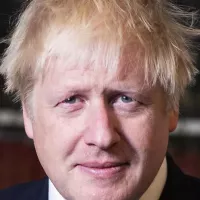
Boris Johnson a British politician and writer served as Prime...
Iraq officially the Republic of Iraq is a West Asian...
Hamas is a Sunni Islamist Palestinian nationalist political organization with...
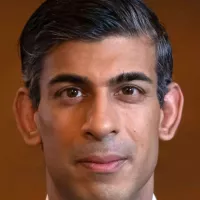
Rishi Sunak is a British politician who served as Prime...

Jimmy Savile was a British media personality and DJ famous...
Trending

31 minutes ago Zach Braff surprised by 'Scrubs' reboot cast's age; show returns with new heart.
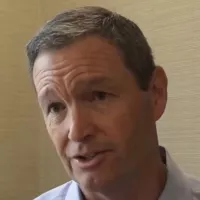
31 minutes ago Mitch Barnhart, Kentucky's Athletic Director, to Retire After Long Tenure

31 minutes ago Jets Secure Breece Hall with Franchise Tag: Future Plans and Contract Details

1 day ago Elisabeth Hasselbeck Returns to 'The View', Receives 'Armor of God' Gift
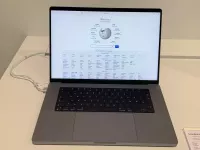
32 minutes ago New Low-Cost MacBook Pro vs MacBook Air M1: Disruption and Accidental Leaks

2 hours ago Mbappé Suffers Knee Sprain, No Surgery Expected: Real Madrid Medical Report
Popular

Jesse Jackson is an American civil rights activist politician and...

Hillary Diane Rodham Clinton is a prominent American politician lawyer...

Jim Carrey is a Canadian-American actor and comedian celebrated for...

Ken Paxton is an American politician and lawyer serving as...

XXXTentacion born Jahseh Dwayne Ricardo Onfroy was a controversial yet...

Michael Joseph Jackson the King of Pop was a highly...
